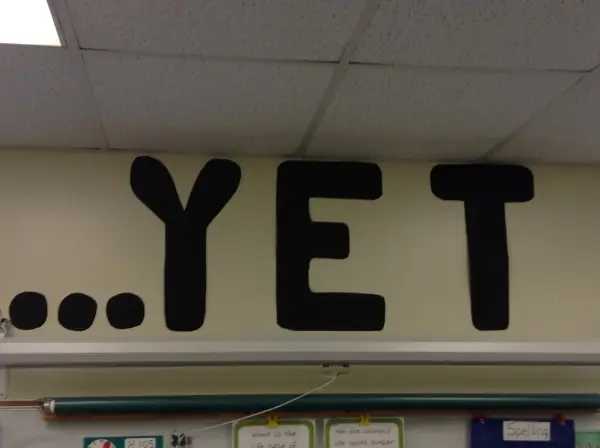Our 2013 Changing the Odds Conference was scheduled to include Dr. Carol Dweck, renowned psychologist and author of Mindset. (Read the book review of Mindset here.) Unfortunately on the eve of the conference, she fell ill and was unable to attend. So at the last minute, we were saved by Dr. David Yeager from UT Austin, who is also a mindset expert and had studied under Dr. Dweck. Dr. Yeager has conducted numerous new research studies of his own on the subject.
At the conference, he said something that really stuck with us. It’s so simple; just one little three-letter word. Ready?
Yet.
That’s all it was. Here’s what he said. “If you catch yourself saying, ‘I’m not a math person,’ just add the word ‘YET’ to the end of it. ‘I’m not a math person YET’ takes on a whole new meaning’.” Adding the word to the end of negative self-talk completely changes the sentence!
Here’s why it is important. Students who believe that intelligence is fixed, that is, that they’re either smart or not, are less likely to try new challenges, and ultimately less likely to achieve big goals. They might spend their whole life in their comfort zone, just trying to maintain their smart status. (We’ve written a whole post about Mindset, so if you want more information – check it out here.)
The word yet is so powerful. We love this idea so much that one of our teachers, second grade teacher Rene Grimes, made this giant reminder to her students.

Has it worked? Well, her student Sarahi may have said it best, "Yet is a powerful word. I would tell other students that if you are frustrated and you want to give up, you can tell yourself, 'I don't have it yet.' And then you practice because you will get it. Tell yourself to wait and practice and don't give up."
Not bad for such a tiny little word, huh?
Share with
Related Resources